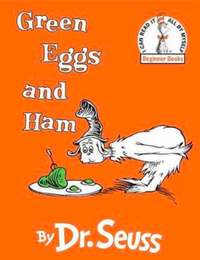John's Gospel
The Gospel of JOHN:
Part one: who wrote it?
I would like to put to you this morning the possibility that the gospel of John was in fact written by the person it claims to be written by, the apostle John, known in the gospel as the Beloved Disciple, the son of Zebedee.
So, back to the beginning. John and James, working in their father’s fishing business.
Part two: Send and receive
In this sermon I choose one key idea in John, the image of 'sent' and 'receive'.
Part three: See the light
The problem with reading John is not that it is difficult, but that it seems so easy. Verses like “I am the light of the world” or “be people of the light” are easy to translate into any language on earth. But what does it mean? My hunch is that the problem with such wonderfully simple words is that they can mean pretty much anything you want them to mean. Every religion on earth claims to bring people into the light, promises en-lightenment. What is distinctive about what John is claiming?
Part four: Glory
In my last couple of sermons on the gospel of John my main point was that John uses the simplest of language to convey the deepest of truth. We talked about the basic, easy to understand words, like send and receive, like darkness and light. For this, my final sermon in our series on John, I am choosing what I think is the hardest word in John: Glory. It is not a big word, just 4 letters in Greek. Doxa, where we get our Latin word Doxology. But this little word is really a very big word, for it is a word for the biggest of bigness, bigger than what our human minds can conceive or contain.
Part one: who wrote it?
I would like to put to you this morning the possibility that the gospel of John was in fact written by the person it claims to be written by, the apostle John, known in the gospel as the Beloved Disciple, the son of Zebedee.
So, back to the beginning. John and James, working in their father’s fishing business.
Part two: Send and receive
In this sermon I choose one key idea in John, the image of 'sent' and 'receive'.
Part three: See the light
The problem with reading John is not that it is difficult, but that it seems so easy. Verses like “I am the light of the world” or “be people of the light” are easy to translate into any language on earth. But what does it mean? My hunch is that the problem with such wonderfully simple words is that they can mean pretty much anything you want them to mean. Every religion on earth claims to bring people into the light, promises en-lightenment. What is distinctive about what John is claiming?
Part four: Glory
In my last couple of sermons on the gospel of John my main point was that John uses the simplest of language to convey the deepest of truth. We talked about the basic, easy to understand words, like send and receive, like darkness and light. For this, my final sermon in our series on John, I am choosing what I think is the hardest word in John: Glory. It is not a big word, just 4 letters in Greek. Doxa, where we get our Latin word Doxology. But this little word is really a very big word, for it is a word for the biggest of bigness, bigger than what our human minds can conceive or contain.
|
The World: Where do we belong?
John 17: 6-19 The Gospel of John is the theological version of 'Green eggs and ham'. Not in the content, but in the process. It is constructed of actually a very small number of Greek words, written with amazingly simplicity. I want to talk this morning about one of those simple worlds - a very important one, and not an easy one, because this one word means different things in John – and that word is ‘world’. In Greek, Kosmos, with a K. ... When you read “They do not belong to the world, just as I do not belong to the world.”, what do you think the word ‘world’ refers to? Does it mean “they do not belong to planet earth, just as I do not belong to planet earth”? |

The Paraclete: Two names for the Holy Spirit
John 14:15-26
If you have ever watched Doctor Who you will know that the Doctor travels through space and time in something which looks on the outside exactly like an old fashioned phone box. Barely big enough for one person. But when you step inside it is enormous. The Tardis is bigger on the inside than the outside.
John’s gospel is definitely like that. Every word, indeed, is bigger on the inside than the outside. This morning we’re in chapter 14, and this spins around, in the tardis zooming through a time warp kind of a way, around a huge central idea, that God and Jesus are one and that we get to be part of that one-ness through the Spirit.
John 14:15-26
If you have ever watched Doctor Who you will know that the Doctor travels through space and time in something which looks on the outside exactly like an old fashioned phone box. Barely big enough for one person. But when you step inside it is enormous. The Tardis is bigger on the inside than the outside.
John’s gospel is definitely like that. Every word, indeed, is bigger on the inside than the outside. This morning we’re in chapter 14, and this spins around, in the tardis zooming through a time warp kind of a way, around a huge central idea, that God and Jesus are one and that we get to be part of that one-ness through the Spirit.
The Trinity: Being and doing
John 16:5-15
Romans 5:1-5
I have a question for you this morning – are you more of a ‘do-er’ or a ‘be-er’?
If you had to choose, are you a person who gains most of your identity and purpose from the things you do and achieve, or do you gain most of your identity and purpose from who you are, and who you are there for?
The ‘being-ness’ of all things flows out of the being-ness of God with the Word. Even before the Word is spoken it exists in relationship. John’s gospel begins here, and John’s theology draws us deeper and deeper into being-in-relation
John 16:5-15
Romans 5:1-5
I have a question for you this morning – are you more of a ‘do-er’ or a ‘be-er’?
If you had to choose, are you a person who gains most of your identity and purpose from the things you do and achieve, or do you gain most of your identity and purpose from who you are, and who you are there for?
The ‘being-ness’ of all things flows out of the being-ness of God with the Word. Even before the Word is spoken it exists in relationship. John’s gospel begins here, and John’s theology draws us deeper and deeper into being-in-relation
